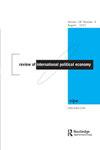An illiberal economic order: commitment mechanisms become tools of authoritarian coercion
IF 3.7
1区 经济学
Q1 ECONOMICS
引用次数: 0
Abstract
Abstract Globalization did not negate state power. It changed the toolkit. We expected the norms and incentives of the liberal economic order to push regimes in places like China and Russia to democratize. Instead, authoritarianism appears to be thriving. This article argues that authoritarians have learned how to take advantage of the institutions underpinning globalization for their own illiberal ends. They use courts in major economic powers to negate the effects of international institutions and to target their political competition. They subvert our expectations by repurposing the basic premises of liberalism – predictability and openness. The article demonstrates these claims by examining how the institutions of multiple international economic regimes, which were designed as constraints, have been turned into offensive tools. The findings illustrate that International Political Economy (IPE) scholars need to begin analyzing how governments learned these tactics and whether we can reconcile the contradictions they exploit.一个不自由的经济秩序:承诺机制成为专制强制的工具
摘要全球化并没有否定国家权力。它改变了工具箱。我们期望自由经济秩序的规范和激励措施推动中国和俄罗斯等地的政权民主化。相反,威权主义似乎正在蓬勃发展。这篇文章认为,威权主义者已经学会了如何利用支撑全球化的制度来达到他们自己的非自由目的。他们利用主要经济大国的法院来否定国际机构的影响,并针对其政治竞争。它们颠覆了我们的期望,重新调整了自由主义的基本前提——可预测性和开放性。这篇文章通过研究多个国际经济制度的制度是如何被设计成约束的,却变成了攻击性工具来证明这些说法。研究结果表明,国际政治经济学(IPE)学者需要开始分析政府是如何学会这些策略的,以及我们是否能够调和他们利用的矛盾。
本文章由计算机程序翻译,如有差异,请以英文原文为准。
求助全文
约1分钟内获得全文
求助全文
来源期刊
CiteScore
9.20
自引率
9.30%
发文量
47
期刊介绍:
The Review of Political Economy is a peer-reviewed journal welcoming constructive and critical contributions in all areas of political economy, including the Austrian, Behavioral Economics, Feminist Economics, Institutionalist, Marxian, Post Keynesian, and Sraffian traditions. The Review publishes both theoretical and empirical research, and is also open to submissions in methodology, economic history and the history of economic thought that cast light on issues of contemporary relevance in political economy. Comments on articles published in the Review are encouraged.

 求助内容:
求助内容: 应助结果提醒方式:
应助结果提醒方式:


